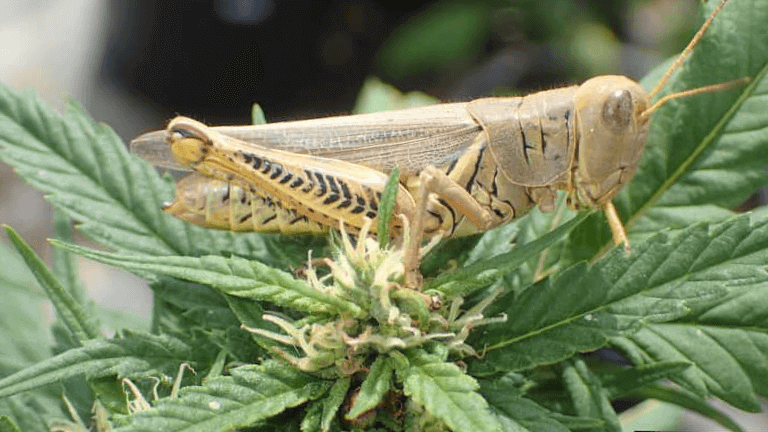Locust Swarms Devastate Fields in Southern Colorado
According to local sources, swarms of locusts have devastated fields in the southern counties of Colorado, causing significant damage to existing outdoor hemp plantations. Experts report that about half of the seasonal crop has been lost in the fields.
Environmentalists link the unexpected formation of locust swarms to unusual climate conditions, specifically increased rainfall during the summer and early fall. Under these circumstances, various species of locusts—especially the local “Mormon cricket,” which has been identified as the main culprit—were able to reproduce successfully, forming legions of hungry insects. Initially, the swarms attacked their usual food sources, such as food crops and forage, quickly stripping the fields bare. They then moved on to industrial crops, including hemp.
Farmers Report Massive Losses
“The locusts ate every plant that was in open ground. On mature bushes, the crickets ate the branches. Young plants were completely devoured. Only chewed-up stems were left,” said Nate Eaton, owner of Stargazer Farms, describing the situation in southern Colorado. “Fortunately, most of our plants are in covered greenhouses. However, the plants that were in a separate open field were almost completely destroyed.”
“To be precise, out of 1,000 seedlings, only three survived,” said Ben Macintosh, co-owner of the business. “In just two days, the locusts wiped out an entire field. Obviously, this year we’re left without our signature outdoor buds.”
Widespread Impact Across the Region
“By my rough estimate, about half of the hemp fields in our county have been completely eaten,” noted Taube Allbog, a representative of the business community in Crowley County, which was at the epicenter of the locust invasion. “Nothing survived in the path of the locusts—neither industrial, medical, nor recreational crops. Many farms, in fact, will be left without income unless they have reserves in storage, and without work, since it’s now too late to plant new crops. On top of that, it’s unlikely that those affected will receive any help from the government, due to ongoing federal restrictions. On the other hand, the surviving farms have reason to celebrate: with a possible shortage of products on the market by the New Year, their goods will obviously sell at inflated prices.”



